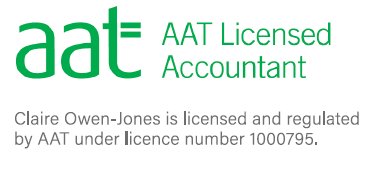Choosing your accountant or bookkeeper is never a fun task. I doubt it'll ever be on the top of any business owner's to do list. However, as with anything finance related, it is a very important decision. You will all have your own list of what ranks one accountant or bookkeeper over another and it is not my place to tell you whether qualifications should weigh more than experience or vice versa. That said, a nice balance of the two is a great start. If anyone seems too cheap then you'll probably discover that they're lacking in one of these two key areas.
However, one area that is often overlooked by both the business owner and the accountant or bookkeeper is speciality. You can Google accountants and bookkeepers for hours and you'll find pages and pages of them that seem to work with everyone. Anyone would think from this mass parade of generalists that this is a great thing. Like a Jack of all trades badge of honour. Well, I want to go against the grain for a moment and tell you why I think engaging the services of a generalist will be bad for your Dental Practice. I think you should only consider working with a Dental specialist and here's 5 reasons why, just to get the ball rolling.
1. Cost shares
You may call it something slightly different, but this is where two dentists share a dental practice but both have their own businesses. For example one dentist runs Owen Limited, the second runs Jones Limited but they both work in a dental practice called Loud and Clear Dental. This is a business set up that only exists within the dental industry. A dental specialist will treat it like it's normal but a generalist won't understand. Their first reaction will be to treat your business like all of the others that they act for. This is wrong. The least harmful suggestion that a generalist will make, is that a cost share is actually a partnership and they'll try to get you both to merge and be business partners. The second, and more harmful suggestion, will probably follow if you (rightly) refuse the first one. They'll say that one of you will need to pay for all of the costs and then recharge half of them to the other dentist. I refer to this as harmful because although logical, recharging expenses is very much within the scope of VAT. You do not want to become VAT registered.
2. NHS Clawback
You have a bad year and you miss your UDA target. It happens. However if you miss it by too much the chances are the NHS will want some of their money back. A dental specialist will keep an eye on your activity statements and then make a provision for this. So what is the issue here? Firstly, a generalist will probably fail to understand all of the entries on your NHS pay statement (more about that later on) so they'll never even get to your activity statements. Is it the end of the world if your accountant doesn't make a provision for any potential clawback? Well no but it can have a large effect on your tax bill. Let's say you underachieved on your UDAs and the NHS have decided that they're going to deduct £30k from your following year's pay. A generalist will put through your total gross fees, but a dental specialist will deduct that £30k. So you either pay the £6k this year and get it back next year, or just pay the correct amount of tax from the start. I'll admit that the net effect is nil but the effect on your cash flow is considerable.
3. Patient Charges
Throughout the day you'll have all these NHS patients giving you £18 for their dental treatment. That can mount up to a nice sum of money over the course of a year but is it income? The correct answer is no as it makes up part of your NHS contract. A dental specialist would know that but would a generalist see money being paid into your bank account and not treat it as income? Imagine you have five NHS patients a day paying £18.80 a time. That could be an additional £5k a year in corporation tax that you should not be paying.
4. Associates and Hygienists
This point works on two levels. The first being a simple case of allocation. Both your associates and hygienists should be direct costs regardless of whether the hygienists go through payroll. A mistake here could seem a little nit-picky, but if you're benchmarking or looking at how much it costs for you to provide each of your services, you'll want to include everything as you risk undervaluing your time. The second point is that a dental specialist will be able to advice you on the current rates of UDA's, what other percentages dentists are paying their associates and IR35 rules. If your associates and hygienists work solely for your practice, your dental specialist accountant will be able to advise and assist on contracts to make sure they are not deemed employees in the eyes of HMRC.
5. Superannuation
I've left this little joy until last as it's a big one. There are so many things that could go wrong so I'm going to rush through them but the general theme is that you don't want your pension fund to be damaged due to lack of knowledge on the part of those who you pay to advise you.
However, one area that is often overlooked by both the business owner and the accountant or bookkeeper is speciality. You can Google accountants and bookkeepers for hours and you'll find pages and pages of them that seem to work with everyone. Anyone would think from this mass parade of generalists that this is a great thing. Like a Jack of all trades badge of honour. Well, I want to go against the grain for a moment and tell you why I think engaging the services of a generalist will be bad for your Dental Practice. I think you should only consider working with a Dental specialist and here's 5 reasons why, just to get the ball rolling.
1. Cost shares
You may call it something slightly different, but this is where two dentists share a dental practice but both have their own businesses. For example one dentist runs Owen Limited, the second runs Jones Limited but they both work in a dental practice called Loud and Clear Dental. This is a business set up that only exists within the dental industry. A dental specialist will treat it like it's normal but a generalist won't understand. Their first reaction will be to treat your business like all of the others that they act for. This is wrong. The least harmful suggestion that a generalist will make, is that a cost share is actually a partnership and they'll try to get you both to merge and be business partners. The second, and more harmful suggestion, will probably follow if you (rightly) refuse the first one. They'll say that one of you will need to pay for all of the costs and then recharge half of them to the other dentist. I refer to this as harmful because although logical, recharging expenses is very much within the scope of VAT. You do not want to become VAT registered.
2. NHS Clawback
You have a bad year and you miss your UDA target. It happens. However if you miss it by too much the chances are the NHS will want some of their money back. A dental specialist will keep an eye on your activity statements and then make a provision for this. So what is the issue here? Firstly, a generalist will probably fail to understand all of the entries on your NHS pay statement (more about that later on) so they'll never even get to your activity statements. Is it the end of the world if your accountant doesn't make a provision for any potential clawback? Well no but it can have a large effect on your tax bill. Let's say you underachieved on your UDAs and the NHS have decided that they're going to deduct £30k from your following year's pay. A generalist will put through your total gross fees, but a dental specialist will deduct that £30k. So you either pay the £6k this year and get it back next year, or just pay the correct amount of tax from the start. I'll admit that the net effect is nil but the effect on your cash flow is considerable.
3. Patient Charges
Throughout the day you'll have all these NHS patients giving you £18 for their dental treatment. That can mount up to a nice sum of money over the course of a year but is it income? The correct answer is no as it makes up part of your NHS contract. A dental specialist would know that but would a generalist see money being paid into your bank account and not treat it as income? Imagine you have five NHS patients a day paying £18.80 a time. That could be an additional £5k a year in corporation tax that you should not be paying.
4. Associates and Hygienists
This point works on two levels. The first being a simple case of allocation. Both your associates and hygienists should be direct costs regardless of whether the hygienists go through payroll. A mistake here could seem a little nit-picky, but if you're benchmarking or looking at how much it costs for you to provide each of your services, you'll want to include everything as you risk undervaluing your time. The second point is that a dental specialist will be able to advice you on the current rates of UDA's, what other percentages dentists are paying their associates and IR35 rules. If your associates and hygienists work solely for your practice, your dental specialist accountant will be able to advise and assist on contracts to make sure they are not deemed employees in the eyes of HMRC.
5. Superannuation
I've left this little joy until last as it's a big one. There are so many things that could go wrong so I'm going to rush through them but the general theme is that you don't want your pension fund to be damaged due to lack of knowledge on the part of those who you pay to advise you.
- The pension pot seems to be shrinking all of the time, so you want someone who knows the current situation and can keep an eye on your contributions. Although neither your accountant nor bookkeeper should give you financial advice regarding your pension, they can keep an eye on it and flag up when you should speak to a dental specialist IFA.
- They know how to complete your annual ARR form and that it's the figure on your SD86C form that gets entered onto your self-assessment tax return. You don't want an associate to come knocking in the future saying that you've conned them out of some of their pension. Equally, you want to make sure that you get the tax relief from your contributions each year.
- A generalist will probably look at your income and point out that you could save some tax by incorporating. A dental specialist knows that this could have a negative impact on your NHS pension so will make sure that you are always fully aware of all of your options.







